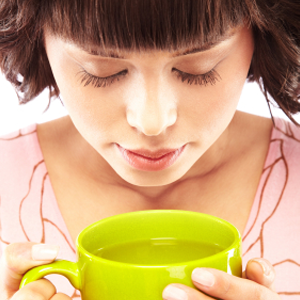Stress in the workplace creates a variety of symptoms, including:
- anxiety
- fatigue
- increased anger
- problems with relationships
- inability to focus properly
- stress headaches
- insomnia
- and, over time, a variety of stress-related diseases.
Stress results when the mind, body or emotions receives an overload of stimulus, whether good or bad. Workplace stress occurs when the mind is not able to handle day-to-day events and challenges. Some people seem to handle daily challenges without any evidence of stress, while others are stressed by the varied activities and changes that the modern workplace presents.
According to Maharishi AyurVeda, this lack of ability to handle daily stress is due to an imbalance, or lack of coordination of the three main mental functions of dhi (learning), dhriti (retention), and smriti (long-term memory).
Maharishi AyurVeda offers many recommendations for supporting these mental functions, and thus gives the person more resilience to stress.
When Prana Vata, the subdosha of Vata that supports mental functions, gets disturbed, the coordination of dhi, dhriti and smriti breaks down and mental stress results.
When Prana and Vyana Vata (the subdosha located in the heart that supports circulation) together are disturbed, it affects not only the mind, but also the communication between the heart and the mind, thus creating mental and emotional stress simultaneously. Emotional stress is usually associated with an imbalance in Sadhaka Pitta, the subdosha of Pitta that supports the emotions and is seated in the heart.
According to Ayurveda, if you are unable to perceive the reality of life, which is blissful, that is an indication of Pragya-aparadh, or mistake of the intellect. Charaka Samhita, a major Ayurvedic text, defines Pragya-aparadh as the lack of coordination of dhi, dhriti and smriti. Pragya-aparadh is the source of all disease, because disease originates when the heart, mind or body loses its connection with nature’s intelligence. When we lose the memory of bliss, the connection with our own true nature in pure consciousness, this is the source of stress and ill-health in the body.
The recommendations of Maharishi AyurVeda aim to restore the balanced functioning of the doshas – of mind, body and emotions – and thus to restore the connection of every part of life to bliss consciousness, which is our true nature.

Stress management with Transcendental Meditation®
The Transcendental Meditation technique, when practiced morning and evening, is a most effective way to relieve anxiety and stress, according to research conducted at Stanford University and according to hundreds of other research studies. One reason that Transcendental Meditation is so effective is that it provides such deep rest that it can dissolve deep-rooted stresses that are lodged in the structure or chemistry of the body. In studies comparing the Transcendental Meditation technique with other programs of self-development available today, Transcendental Meditation was found to surpass the others in results.
Creativity, problem solving, interpersonal relationship
One major cause of stress in the workplace is lack of creativity or mind power to solve problems on the job. Because Transcendental Meditation heightens creativity, IQ, memory and clarity of thinking, it helps relieve workplace stress in this way also. Relationships with workplace colleagues have also been found to improve with the practice of Transcendental Meditation. Positive, harmonious behaviour is a direct result of clearer thinking, reduced stress and balanced emotions, and if you are experiencing those positive results, this will be reflected in better relationships.
Overcoming mental stress Ayurvedic daily routine
Mental stress is caused by an imbalance in Prana Vata. Following the Ayurvedic daily routine is probably the most important thing you can do to prevent stress on the job. The daily routine is designed to prevent stress from covering over the bliss of balanced living.
The morning routine includes:
- waking up early, before the sun rises,
- starting the day with an abhyanga, or Ayurvedic oil massage. Abhyanga not only removes toxins from the body; it stimulates the organs and enlivens the flow of intelligence in the body. By the time you finish your oil massage and bathe, your mind will feel fresh, energized and awake, without the need for coffee to start the day.
- The practice of yoga asanas is also balancing to mental, physical and emotional stress, as are deep breathing exercises known as pranayama.
- The Transcendental Meditation practice completes the morning routine.
Ayurvedic herbal products to balance mental stress
Peace of Mind
For fortifying the mind against mental stress, take Peace of Mind tablets (MA1401) or Good Night Tea. Peace of Mind supports natural resistance to stress and also increases alertness and mental sharpness while reducing anxiety and fatigue. It enhances learning, retention and long-term memory (dhi, dhriti and smriti); increases mental energy by supporting Prana Vata; and supports mental resistance to stress.
The Peace of Mind ingredients are renowned Medhya herbs that support mental function. These are Aloeweed, Jal-Brahmi, Indian Tinospora and Liquorice. Aloeweed, for example, directly nourishes the nerve cells in all areas of the body, whilst Indian Tinospora has a unique effect of cleaning out the micro-circulatory channels of the body. This improves the flow of nutrients to the brain and nerve cells.
Ayurvedic herbal products to balance emotional stress and support emotional health
Blissful Joy
If you are feeling emotional stress, negativity toward your boss or co-workers, or sadness, try Blissful Joy tablets. Some of the herbs in Blissful Joy help improve coordination of mind and emotions, while others help support emotional stability by improving self-confidence, positive thinking, motivation and feeling of fulfilment. All of the herbs together create the synergistic effect of supporting resistance to emotional stress.

Other Ayurvedic tips to relieve stress
- Stretch and breathe deeply, even when indoors, to energize the body and bring more oxygen to the brain. As mentioned earlier, taking frequent breaks is good.
- Instead of drinking coffee, which only creates toxins and adds to mental, emotional and physical stress, bring a thermos of Take it Easy tea to work and sip it throughout the day.
- Drinking warm fluids throughout the day also helps in detoxifying and the body. Warm, non-caffeinated fluids also help reduce Vata dosha and mental stress. Many times people experience fatigue and headache on the job due to simple dehydration. This is especially a problem in windowless office buildings that rely on dry, forced air for heating and cooling.
- Aromatherapy is another excellent way to infuse bliss into the workplace, and also helps purify the air. Use Peace of Mind Aroma Oil for dissolving mental stress, and Blissful Joy Aroma Oil for emotional stress.
- If you feel hungry during the workday, eat healthy snacks and avoid junk food from vending machines.
- If you feel angry or emotionally stressed, eating a sweet, juicy pear, or a teaspoon of Rose Petal Preserve, can reduce Pitta dosha and have an immediate effect in balancing agitated emotions.
In conclusion
Taking these small steps will have an effect in balancing Sadhaka Pitta, Prana Vata and Vyana Vata, and enhancing the coordination between dhi, dhriti and smriti.
It is important to follow the Ayurvedic diet, the daily routine and other recommendations in order to gain these benefits. The results will be more than worthwhile. The Ayurvedic solutions to stress and other problems in life are remarkable for their simplicity and effectiveness, and quite easy to add to your day.
DISCLAIMER: The information in this document is presented for the sole purpose of imparting education on Maharishi AyurVeda and neither the information nor the products are intended to diagnose, treat, mitigate, cure or prevent any disease. If you have a medical condition, or are pregnant or lactating, please consult a health professional and it is recommended that you speak with your physician before making significant changes to your diet or routine.



